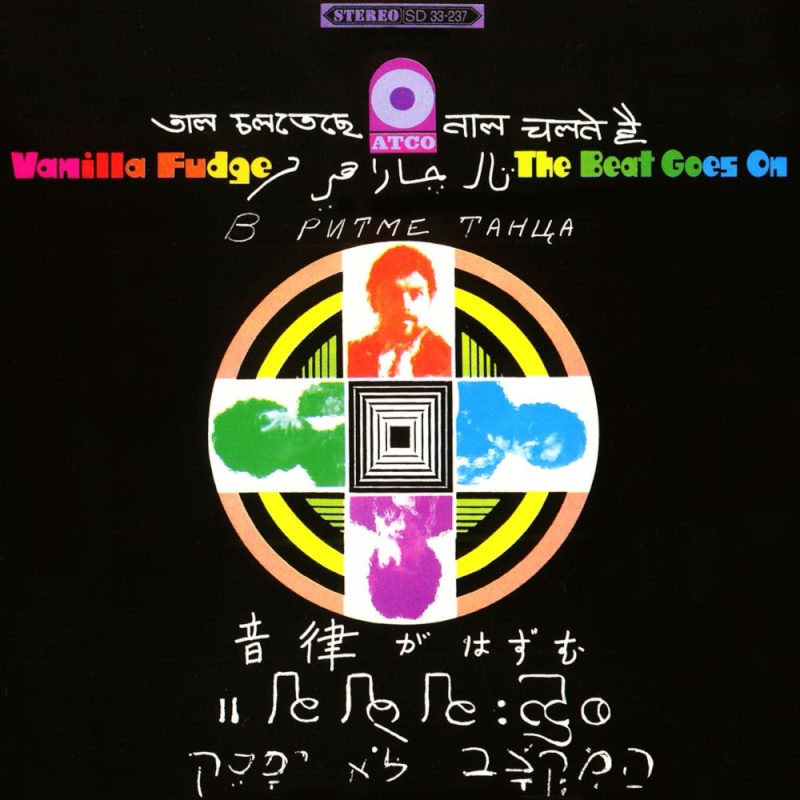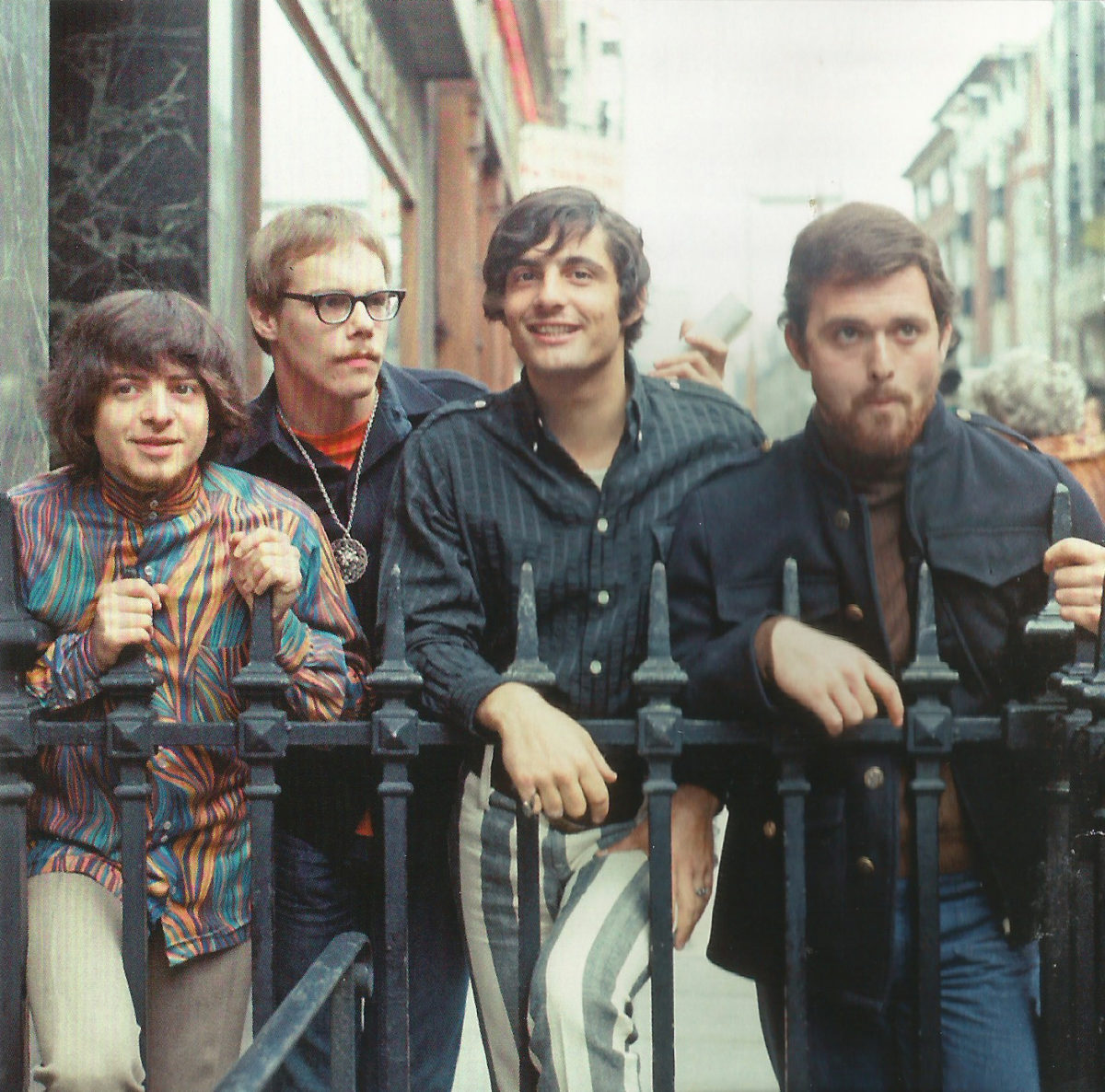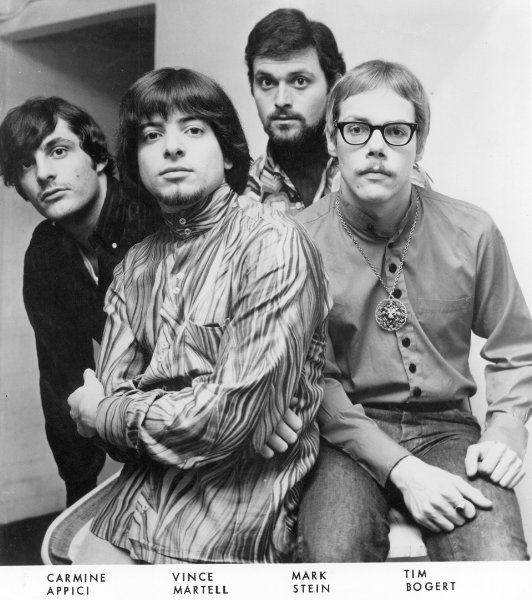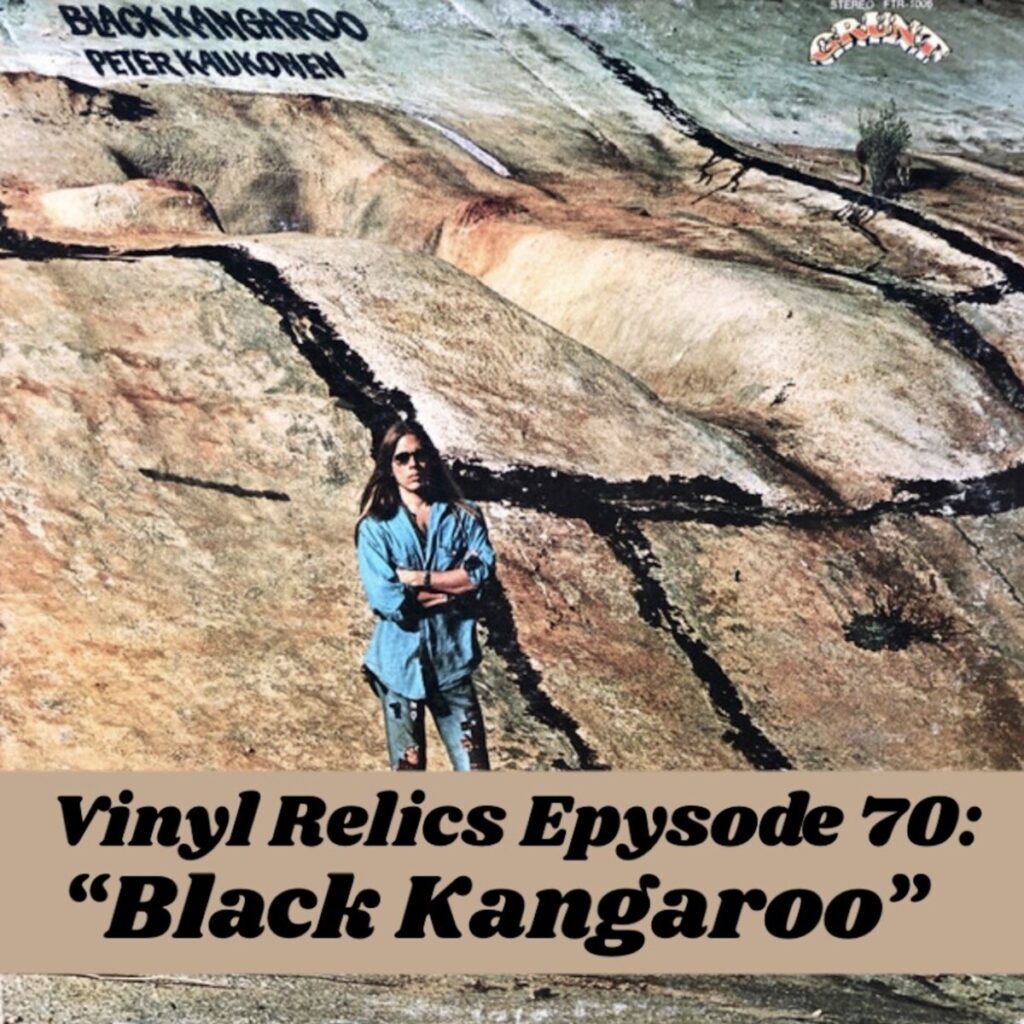Psychedelic Skeletons in the Closet–Vanilla Fudge
Psychedelic Skeletons in the Closet–Vanilla Fudge
Suspect Record: The Beat Goes On by Vanilla Fudge
Release Date In Relation to Sgt. Pepper: Eight months later
This week we look back on what many scholars, music critics and anyone who’s ever heard it consider to be the worst psychedelic album ever made. Back in 1968, Sonny Bono’s sole solo mio LP Inner Views (Featured last week in this column) flopped so ignominiously that it even took Cher’s solo career down with it. In a time where Sonny really could use some hip credibility, Vanilla Fudge’s The Beat Goes On LP, which featured countless nauseating revisions of his 1967 hit song, wasn’t doing him or Cher any huge favors.
Drop the needle anywhere on this record and you can’t believe what you’re hearing.
Following in the footsteps of other New York organ-based bands like the Rascals and the Vagrants, the Vanilla Fudge specialized in radically reconstructed versions of the day’s popular hits. Unlike the previous company, the Fudge weren’t content with merely covering tunes. No, the Fudge weren’t satisfied until they beat a song senselessly with a rock until every last drop of life oozed out of it. Sometimes the results could be exhilarating, as in their melodramatic remake of the Supremes’ “You Keep Me Hanging On” and their spooky take of Dusty Springfield’s “The Look of Love”. More often than not, the group’s elongated agonizing over when to start and end a song resulted in musical Chinese water torture. Take the band’s excruciating version of “Eleanor Rigby” on their debut album. Hadn’t the Beatles’ beloved old biddy been through enough without being dug up again by the Fudge and stretched out on a rack for eight torturous minutes?
THE FUDGE’S PRO-BONO PLATFORM!
That debut Vanilla Fudge album included a cover of Cher’s 1966 hit “Bang Bang” which carried the germ of two horrid albums to shortly follow. Before lithium voiced VF singer Mark Stein and the boys kick into “Bang Bang” proper, they stick in a few verses of “Ring Around The Rosy.” For real! Sonny Bono must’ve been either honored or insulted by his Atco labelmates’ grafting of a nursery rhyme to his composition because on his only solo LP Inner Views, he responds by singing “Ring around the rosy/ Your Dad is getting nosy/ Your Mom is cooking sturgeon/ Your sister’s still a virgin” twice during in his twelve minute Vanilla Fudge tribute “I Just Sit There”. In a better part of the world, The Beach Boys, the Byrds, the Beatles, the Stones and Dylan are all sending each other secret messages through their LPs and coming up with great masterworks like Pet Sounds and Sgt. Pepper. But in the Bizarro world of Sonny and Fudge, the dangerous exchange of limited ideas is reaching critical mass. No doubt the Fudge and their producer Shadow Morton heard “I Just Sit There,” Sonny’s sitar riddled rewrite of his own “The Beat Goes On,” and were thus inspired to put out a concept album which portends to tell two stories–the history of music AND the history of time–in four phases! You’d better sit down kids, in-fucking-deed!
PHASE ONE: IN WHICH BONO GETS HIS OATS!
The liner notes provide us with the first visible signs of terror: “This is like no album ever made. Above ground or underground. The music is that of Ludwig van Beethoven…and Cole Porter…and Stephen Foster…and Wolfgang Amadeus Mozart…and Sonny Bono.” Yessir, Sonny Bono, the Vanilla Fudge’s Dali Lame-O of bad psychedelic music. “Phase One” of the band’s two part pop music lesson starts with the 18th century and Mozart’s “Divertimento No 13 in F Major,” then its zip zips its way through the 19th century with a brisk a capella rendition of “Old Black Joe”. Unsurprisingly, the 20th century is represented by Edison’s first cynlinder recording, followed by reverent versions of “12th Street Rag,” “Don’t Fence Me In,” and “In the Mood,” right on up to lousy versions of “Hound Dog” and “She Loves You” that would make a wedding band blush. Interspersed between these miniatures are jazzy, bombastic, classical and loungey versions of…das right, kiddies…“The Beat Goes On”!!!
It should be noted that each of these phases is ushered in by a deeply echoed voice to keep you from getting confused over what phase you’re listening to.
PHASE TWO: WHEN WOLFGANG GETS BLUE!
“Phase Two” has Beethoven’s “Moonlight Sonata” and two more butcherings of “The Beat Goes On” to keep things a little psychedelic. Since “Phase One” was the history of music, maybe “Phase Two” predicts the future of…people immersing themselves in classical music in an attempt to shield themselves from future Vanilla Fudge recordings. It should be noted that each of these phases is ushered in by a deeply echoed voice to keep you from getting confused over what phase you’re listening to. By the time the needle reaches the label at the end of side one, you’ll only be sure of one thing, in a game of “Name That Tune,” you could name “The Beat Goes On” in five notes and that you’ll never want to hear any of those five notes in such close proximity EVER AGAIN!
PHASE THREE: THE SAN FRANCISCO TREAT?
The hysterically historical “Voices In Time” segment, features such downer sound bites as FDR and Kennedy’s funeral processions plus Truman’s announcement that he just dropped the atomic bomb, against a musical bed consisting of, you guessed it, “The Beat Goes On.” Can’t you just hear the love-ins grinding to a halt? According to Mark Stein, “there were a lot of people doing LSD in San Francisco in those days, and there were reports coming in that people were freaking out going on bummers (while listening to the album). I remember getting that fear, saying ‘Uh-oh, I think we really fucked up’.” At least all the participants in the “Voices In Time” segment weren’t around to die of embarrassment.
PHASE FOUR–HERE COMES THE FUDGE!
This crucial bit of self indulgence consists of nine minutes of the Fudge, speaking their Vanilla minds, followed by more background noodling to remind you that this album is indeed called The Beat Goes On. In a thick Bronx accent, guitarist Vinnie Martell waxes philosophical with HIS long distance dedication:
“This album is people throughout the world, their idea(r)s, beliefs, their emotions. We only hold the tools by which to express time through music…”
You almost expect him to toast the lovely bride and groom directly afterwards. Mark Stein keeps things cultural by reciting about the burial place of Moses in his bar-mitzvah best. Carmine Appice (see Psychedelic Scene interview) had the good sense to beg off this oral assignment by saying “If you want to hear me talk, listen to my drums.” Bassist Tim Bogert seems deadly serious and extremely pissed off during his two minutes of interview outtakes, except for the last part where he admits to liking ice cream.
Q: What do you see in the future for the Vanilla Fudge?
Tim: Another album. (Wearily) I just hope the trip gets lighter.
Q: (What do you think of) People in the music industry?
Tim: Disheartening. And a lot of other words I can’t use.
The fact that no one in the industry could talk the band out of this atrocity is disheartening indeed. Drop the needle anywhere on this record and you can’t believe what you’re hearing. Part of Bogert’s ire is that the band hated this album concept from the get-go. It was foisted on Fudge by their producer Shadow Morton, who, as the mastermind behind the Shangri-Las, was never at home with subtlety. But if it had been a success, maybe the band might’ve taken all the credit. On the first issue sleeve notes they’re hedging their bets, or as Tim puts it: “The beat is rolling in on the tides, man. You can’t talk us out of it or bomb it or pollute it”. That the Fudge released a more sensible new album four months later indicates that the tides got the last word in.
And note this, the liner notes for all subsequent vinyl pressings removed all mention of the history of music, time or Sonny Bono.
Related: The Top 100 Psychedelic Rock Artists of All Time
The 100 Best Psychedelic Rock Albums of the Golden Age
The Top 200 Psychedelic Songs from the Original Psychedelic Era
Gallery
Recent Articles

Loading...





